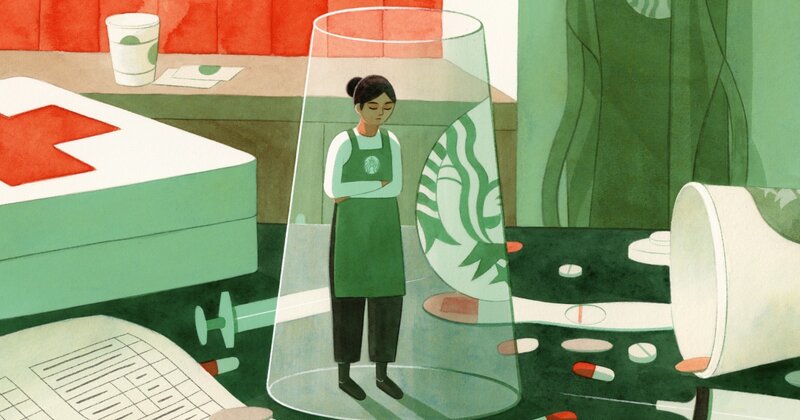Leah Russell felt a surge of hope when she spotted Starbucks on a list of employers that offer fertility benefits in the summer of 2019. She and her husband, Stephen, were desperate to start the family they had been dreaming of since they started dating a decade ago. The couple had recently learned they would need to pay $30,000 for another round of in vitro fertilization, or IVF, treatment after two rounds failed to result in a pregnancy.
“The price tag was just more than we could have ever imagined paying,” said Russell, 28.
Russell said she and her husband had already been rejected by three banks for a loan to cover the additional cost of IVF, the only thing their doctor said might help them conceive. Nebraska, where they live, is one of dozens of states that don’t require insurers to offer coverage for fertility treatments, meaning Stephen and Leah would be on their own to pay for medical help.



 Starbucks
Starbucks Medical
Medical Health
Health Pregnancy
Pregnancy


